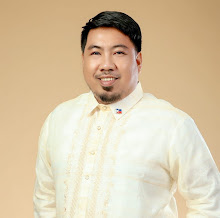The Civil Service Commission (CSC) recently unveiled its updated dress code for government employees, emphasizing inclusivity, cultural identity, and professionalism. While the move has garnered praise for promoting Filipino and ASEAN heritage, many civil servants, particularly teachers, have raised concerns about practicality and comfort.
Under the new policy, outlined in Memorandum Circular No. 16, series of 2024, civil servants are required to wear Filipiniana-inspired attire on Mondays, agency-prescribed uniforms Tuesday through Friday, and smart casual clothing on weekends if working. The guidelines also align with the Philippine Tropical Fabric (PTF) Law by requiring locally sourced fabrics for uniforms.
Concerns from Teachers
On social media, teachers voiced strong opinions about the policy, particularly the prescribed fabrics and designs.
"Maari po ba na cotton din po sana tela ng uniform ng mga teachers dahil parang sako po ng tela at sobrang init kapag isinusuot. Buti naman po sana kung aircon ang mga classroom," said Connie Ringor Lopez Baricaua.
Other teachers echoed the sentiment, highlighting the realities of their working conditions. "Please consider the working environment. We don't have air-conditioned classrooms, so when you design the uniform and select the cloth, please consider our side," wrote Dianne Sedigo-Faller.
Some commenters suggested that policymakers experience the same conditions as educators. “Those officials deciding on the type, design, and textile of uniforms must try it first without having air-conditioning in their respective offices,” urged Gho Tuazon II.
Meager Clothing Allowance
The uniform allowance of Php 6,000 was another point of contention. Several civil servants questioned whether this amount would suffice for the materials and designs required under the new dress code. "Mag rerevise kayo ng dress code pero fixed lang sa 5k ang badyet. Oh come on!" wrote Raymart Quilantang Lpt Maed.
Meanwhile, others called for a more consistent approach to uniforms. “Why do teachers’ uniforms change every few years? The military and medical fields have consistent designs. Why can’t we have the same?” asked Decederia Tonacao.
Inclusivity vs. Practicality
While the policy was praised for its inclusivity—allowing employees to dress according to their gender identity and expression—it raised practical concerns for employees in fieldwork or remote locations.
"Can we all agree that this is not applicable to DepEd, especially those in remote areas like uplands and coastal regions? Why focus on this when the lack of classrooms and learning materials remains unresolved?" questioned Clarisse Ranido Calmante.
A Divided Response
While the policy has been lauded for its vision of a modern, inclusive workforce, its practicality—especially for teachers and field employees—remains a contentious issue.
The revised dress code underscores the complexities of balancing cultural pride, inclusivity, and practicality, leaving many to wonder if its implementation will unify or further divide the nation’s civil service.
*Image was generated using AI



Comments
Post a Comment